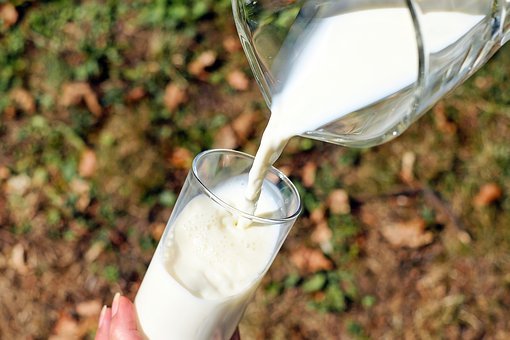Kidney stones, which are solid masses made up of small crystals, form when your urine contains too much of a certain substance, such as calcium or struvite. Stones can occur in the ureter or in the kidneys. Although diet can cause some types of kidney stones, there is no correlation between artificial food dyes and the formation of kidney stones.

source
TYPES
Kidney stones made of calcium are the most common type of stones. In these stones, calcium usually combines with oxalate, but calcium can also mix with phosphate or carbonate. These stones are most common in men between the ages of 20 and 30. Struvite stones are common in women who have urinary tract infections. Uric acid stones occur with gout or chemotherapy, and are more common in men. Other substances can also cause stones to form, including some medications.
SYMPTOMS
Kidney stones can cause different symptoms depending on their location. When the stones move down the tubes or ureters, they can block the flow of urine and cause severe pain, which starts suddenly, goes away for a period of time and then recurs. Pain may be in the abdomen, the back or the testicles. Other symptoms include blood in the urine, abnormal urine color, chills, fever, nausea and vomiting. Some stones, however, do not cause any symptoms.
DIET
Your diet can play a role in the formation of kidney stones, depending on the type of stones. The National Kidney Foundation recommends people who have had kidney stones in the past drink at least 3 quarts of fluid throughout the day. People with calcium stones may need to reduce the intake of sodium in their diet, which can affect the balance of calcium. If you have oxalate in your stones, you should reduce the amount of food you consume that is high in oxalates, such as soy, nuts and beans.
RECOMMENDATIONS
Consult your physician for nutritional guidelines. Your doctor can examine your kidney stones to determine which substances make up your stones. Although food dyes do not affect kidney stone formation, processed foods high in sodium may also contain artificial coloring. Your doctor may prescribe medication to help break up your stones. In some cases, surgery may be useful if a stone is too large or blocking urine. Once you have kidney stones, you are at greater risk of developing the stones again.
I think I would be useful to add #health as hashtag. Kind regards
Downvoting a post can decrease pending rewards and make it less visible. Common reasons:
Submit